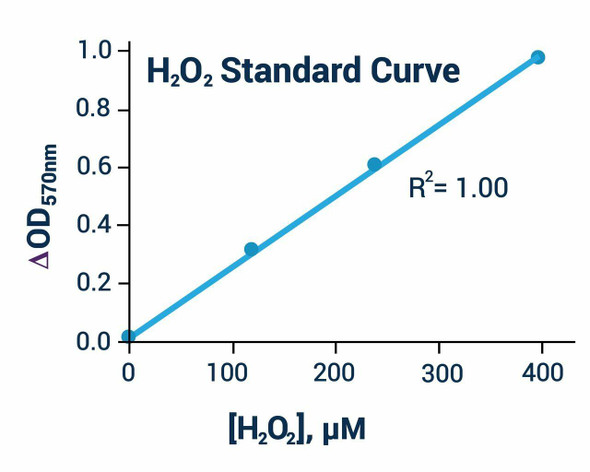Catalase (CAT) Activity Assay Kit (MAES0044)
- SKU:
- MAES0044
- Product Type:
- Assay
- Instrument:
- Microplate Reader
- Sample Type:
- Serum, Plasma, Cells, Cell Culture Supernatant, Tissue
- Sensitivity:
- 1.12 U/mL
- Range:
- 1.12 -150 U/mL
- Assay Time:
- 40 min
- Shipping:
- Gel Pack
- Research Area:
- Oxidative Stress
- Antioxidant
- Diabetes & Obesity
- Plant & Environmental Stress
- Enzyme Activity
Description
| Product Name: | Catalase Activity Assay Kit |
| Product Code: | MAES0044 |
| Product Size: | 96 Assays |
| Sample Type: | Serum, plasma, cells, cell culture supernatant, tissue |
| Assay Time: | 40 min |
| Instrument: | Microplate reader |
| Sensitivity: | 1.12 U/mL |
| Detection Range: | 1.12 -150 U/mL |
| Recovery Rate: | 100 |
| Inter CV: | 7.7 |
| Inter CV: | 3.9 |
CAT is an enzyme in organism that can efficiently and specifically decompose hydrogen peroxide and is a binding enzyme with iron porphyrin as an auxiliary group. CAT clears hydrogen peroxide in the body and protects cells from the toxicity of H2O2. CAT can also oxidize certain cytotoxic substances, such as formaldehyde, formic acid, phenol and ethanol. According to the difference of catalytic center structure, CAT can be divided into two types, one is iron porphyrin structure, also known as iron porphyrin enzyme, the other contain manganese ion, also known as manganese catalase. CAT is common in breathing organisms. It is mainly found in chloroplasts, mitochondria, endoplasmic reticulum, liver and red blood cells of animals.
The reaction that catalase (CAT) decomposes H2O2 can be quickly stopped by ammonium molybdate. The residual H2O2 reacts with ammonium molybdate to generate a yellowish complex. CAT activity can be calculated by production of the yellowish complex at 405 nm.
| Shelf Life: | 6 Months |
| Storage: | 2-8°C |
| Shipping: | Gel Pack |
| Research Area: | Enzymes, Oxidative stress |






